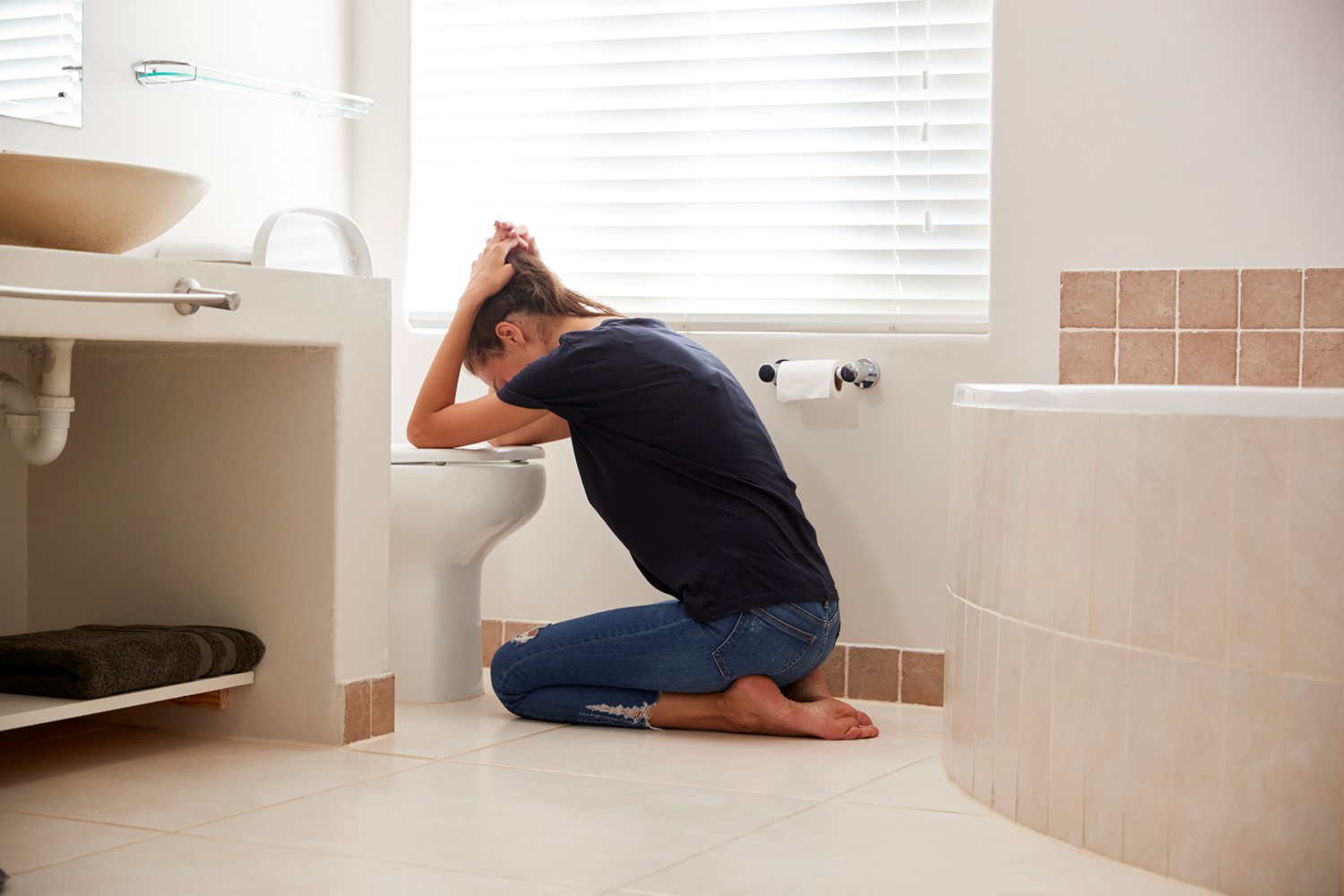Dehydration
Peer reviewed by Dr Colin Tidy, MRCGPLast updated by Dr Toni Hazell, MRCGPLast updated 30 Jul 2024
Meets Patient’s editorial guidelines
- DownloadDownload
- Share
- Language
- Discussion
- Audio Version
In this series:Nausea and vomitingNausea medicine
Although dehydration can be mild and usually just needs you to drink extra fluids, it can also be very severe and life-threatening.
In this article:
Video picks for Other signs and symptoms
Continue reading below
What is dehydration?
Dehydration means your body does not have enough fluid. This may be because you haven't drunk enough fluid to replace the fluids you have lost, such as when sweating or in your wee (urine). If dehydration isn't treated it can get worse and become a serious problem.
Signs and symptoms of dehydration
Back to contentsThe symptoms include:
Feeling thirsty.
Dark yellow and strong-smelling wee (urine).
Feeling dizzy or light-headed.
Feeling very tired.
Dry mouth, lips and eyes.
Weeing less urine and less often.
However the symptoms and signs vary depending on age and the severity of dehydration.
Signs in adults
Thirst.
Dry or sticky mouth.
Not peeing very much.
Dark yellow pee.
Dry, cool skin.
Headache.
Muscle cramps.
Signs of severe dehydration
Not peeing, or having very dark yellow pee.
Very dry skin.
Feeling dizzy.
Rapid heartbeat.
Rapid breathing.
Sunken eyes.
Sleepiness, lack of energy, confusion or irritability.
Fainting.
Severe dehydration is a medical emergency and needs immediate treatment.
Continue reading below
What are the causes of dehydration?
Back to contentsThe causes include:
Not drinking enough fluids.
Being exposed to the sun in hot weather for long periods ('sunstroke').
Drinking too much alcohol.
Taking certain medicines called diuretics that reduce the amount of fluid in your body.
Babies, young children, the elderly and people with diabetes are at increased risk of dehydration.
Do coffee and tea dehydrate you?
Coffee and tea contain caffeine, which has a slight diuretic effect (making you want to wee more). However, you would have to drink large amounts of each for this to be significant. The fluid in the tea or coffee will usually counteract this effect.
What are the treatments for dehydration?
Back to contentsDrinking lots of fluids
If it's difficult to drink or you keep being sick (vomiting) then keep taking small sips of fluid and gradually drink more if you can.
Rehydration sachets
These are only recommended for those who are at increased risk of dehydration - for most people, drinking normal fluids such as water is fine.
Continue reading below
When to see a doctor for dehydration
Back to contentsSpeak with your doctor or nurse for advice if your symptoms don't improve or you have any concerns. Call 111 (in the UK) if you can't speak to your GP or don't know what to do next.
Call 999 (in the UK) or go to Accident and Emergency (A&E) if you have any signs of severe lack of fluid in the body (dehydration), such as:
Feeling very weak and tired.
Feeling confused or disorientated.
Dizziness.
Not having passed wee (urine) for eight hours.
Your pulse feeling weak and rapid.
Babies and young children with dehydration
Back to contentsIt's quite common for young children to become lacking in fluid (dehydrated). It is often mild but can be serious if it's not dealt with quickly. Babies and young children need plenty of fluids to avoid dehydration.
Signs of dehydration in babies, infants, toddlers and young children
The signs of dehydration include:
Dry mouth and tongue
No tears when crying
Dry nappies for over 3 hours
Sunken eyes and cheeks
Sunken soft spot on the top of the skull (fontanelle) in babies
Sleepiness, lack of energy, or irritability
Treatment of dehydration in babies and young children
You should continue breastfeeding or using formula. Give smaller quantities of milk more often than usual. Don't make formula weaker by diluting it with water.
Give small children their usual diet.
Give frequent small sips of extra water.
Rehydration powder sachets are only needed if the child is at increased risk of dehydration - normal fluids are fine for most children.
Contact your doctor urgently or call an ambulance if your child displays any of the following signs or symptoms of dehydration:
Seems drowsy.
Is breathing fast.
Has a dry mouth.
Has dark-yellow wee.
Has cold and blotchy-looking hands and feet.
Patient picks for Other signs and symptoms

Signs and symptoms
Tinnitus
Tinnitus is a noise such as a ringing or buzzing that you can hear, but the noise is not caused by anything outside your ear.
by Dr Doug McKechnie, MRCGP

Signs and symptoms
Vomiting blood
You should call an ambulance or go directly to the nearest emergency department if you are vomiting blood. Often the bleeding will stop quite quickly but in some cases it can become severe and life-threatening. So always seek medical help quickly. There is a range of different causes - these are discussed below. Many causes can be treated but the first priority is to make sure the bleeding stops. The rest of this leaflet aims to give some background information but is not a substitute for obtaining immediate medical attention if vomiting blood.
by Dr Philippa Vincent, MRCGP
Further reading and references
- Diarrhoea and vomiting in children under 5; NICE Clinical Guideline (April 2009; updated October 2022).
- Gastroenteritis; NICE CKS, May 2024 (UK access only)
Continue reading below
Article history
The information on this page is written and peer reviewed by qualified clinicians.
Next review due: 30 Jul 2027
30 Jul 2024 | Latest version

Ask, share, connect.
Browse discussions, ask questions, and share experiences across hundreds of health topics.

Feeling unwell?
Assess your symptoms online for free
Sign up to the Patient newsletter
Your weekly dose of clear, trustworthy health advice - written to help you feel informed, confident and in control.
By subscribing you accept our Privacy Policy. You can unsubscribe at any time. We never sell your data.